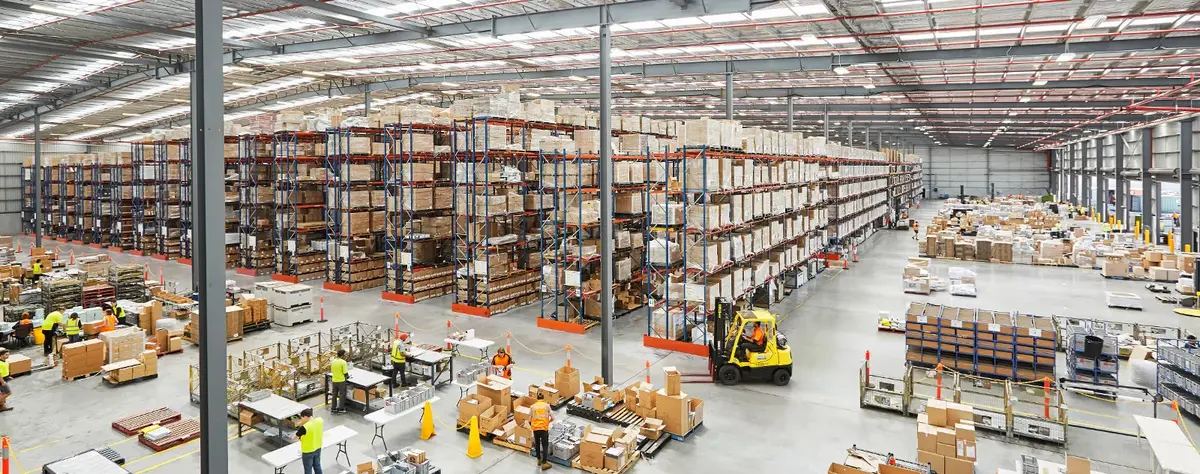
4PL vs. 3PL: Choosing the Right Logistics Partner for Your Business
In today’s highly competitive business landscape, effective logistics management plays a crucial role in determining a company’s success. The ability to efficiently move goods and manage the supply chain is essential for businesses of all sizes. When it comes to logistics, two commonly used terms are 4PL (Fourth-Party Logistics) and 3PL (Third-Party Logistics). Understanding the difference between these two options is vital for choosing the right logistics partner that aligns with your business needs and goals.
4PL: Streamlining Your Logistics Operations
What is 4PL?
4PL, also known as Fourth-Party Logistics, refers to a supply chain management solution where an external logistics provider acts as a single point of contact for all logistics-related activities. Unlike 3PL, which primarily focuses on transportation and warehousing, a 4PL provider offers end-to-end supply chain management services.
Advantages of Choosing a 4PL Partner
- Enhanced Efficiency: By outsourcing your logistics operations to a 4PL provider, you can streamline your supply chain processes, leading to improved efficiency and cost savings.
- Expertise and Specialization: 4PL providers are experts in logistics management and possess specialized knowledge in optimizing supply chain operations.
- Single Point of Contact: With a 4PL partner, you have a single point of contact for all logistics activities, eliminating the need to coordinate with multiple vendors.
- Technology and Analytics: 4PL providers leverage advanced technologies and data analytics to optimize supply chain processes, leading to better visibility and decision-making.
- Flexibility and Scalability: A 4PL partner can adapt to your business’s changing needs and scale your logistics operations accordingly, providing greater flexibility.
Is 4PL Right for Your Business?
While 4PL offers numerous advantages, it may not be suitable for every business. Consider the following factors when determining if 4PL is the right choice for your logistics needs:
- Complex Supply Chain: If your business operates with a complex supply chain involving multiple vendors, suppliers, and distribution channels, a 4PL partner can effectively manage and streamline these complexities.
- Focus on Core Competencies: Outsourcing logistics to a 4PL provider allows you to focus on your core competencies and strategic initiatives while leaving the supply chain management to the experts.
- Scalability: If your business experiences fluctuating demand or seasonal variations, a 4PL partner can offer the flexibility and scalability required to meet changing logistics requirements.
3PL: Outsourcing Specific Logistics Functions
What is 3PL?
3PL, or Third-Party Logistics, refers to outsourcing specific logistics functions to an external service provider. These functions often include transportation, warehousing, and distribution.
Advantages of Choosing a 3PL Provider
- Cost Savings: By leveraging the expertise and infrastructure of a 3PL provider, you can avoid significant investments in logistics resources and infrastructure, resulting in cost savings.
- Network and Resources: 3PL providers have an established network and resources, including warehouses, distribution centers, and transportation fleets, enabling efficient and reliable logistics operations.
- Specialized Services: Depending on your business requirements, you can choose a 3PL provider that offers specialized services such as freight forwarding, order fulfillment, or inventory management.
- Industry Expertise: 3PL providers often possess extensive industry knowledge and experience, allowing them to navigate regulatory requirements and industry-specific challenges effectively.
Is 3PL Right for Your Business?
Determining if 3PL is the right logistics partner for your business involves considering the following factors:
- Specific Logistics Functions: If your business primarily requires assistance with specific logistics functions like transportation or warehousing, a 3PL provider can effectively handle these operations.
- Cost Considerations: Evaluating the cost implications of outsourcing logistics versus managing them in-house is crucial. A 3PL provider can offer cost savings through their economies of scale and established infrastructure.
FAQs (Frequently Asked Questions)
- What are the key differences between 4PL and 3PL?
- 4PL offers end-to-end supply chain management services, while 3PL focuses on specific logistics functions such as transportation and warehousing.
- 4PL acts as a single point of contact for all logistics activities, while 3PL providers handle specific logistics functions as per the agreement.
- How do I decide between 4PL and 3PL?
Consider the complexity of your supply chain, the need for end-to-end management, and the specific logistics functions your business requires. Assess the advantages offered by each option and evaluate which aligns better with your business goals.
- Can I switch between 3PL and 4PL providers?
Yes, businesses can switch between logistics providers based on their changing needs and priorities. It’s essential to thoroughly evaluate the capabilities and track record of potential providers before making a switch.
Yes, both 4PL and 3PL can benefit small businesses by providing access to specialized logistics expertise, cost savings, scalability, and improved efficiency. The choice depends on the specific requirements and goals of the business.
Conclusion
Choosing the right logistics partner is a critical decision that can significantly impact your business’s efficiency and bottom line. Understanding the key differences between 4PL and 3PL, along with their respective advantages and considerations, allows you to make an informed choice. Whether you opt for the comprehensive services of a 4PL provider or the specialized functions offered by a 3PL partner, aligning your logistics strategy with your business goals is key to success.






